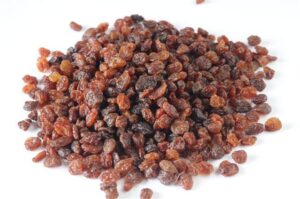A Growing Market for Nut Exporters
With Europe’s demand for walnuts on the rise, exporting this nutrient-rich nut to the European market offers significant potential for producers worldwide. European consumers are increasingly health-conscious, seeking high-quality, natural foods like walnuts for their nutritional benefits. This guide explores how to export walnuts to Europe effectively, covering demand, compliance requirements, and successful market entry strategies. Exporting Walnuts to Europe

Why Export Walnuts to Europe? Understanding Market Demand
Walnuts are valued in Europe for their rich nutritional profile, offering Omega-3 fatty acids, antioxidants, and essential vitamins. As more Europeans embrace plant-based, health-oriented diets, the demand for walnuts has grown significantly, creating opportunities for exporters.
- Health Trends Drive Demand: European consumers prioritize natural, nutritious foods, and walnuts are popular for their heart health and anti-inflammatory benefits.
- Diverse Usage: Walnuts are versatile ingredients in Europe, used in everything from baking and cooking to snack foods and gourmet products.
- Organic and Premium Varieties: There is an increased interest in organic and premium walnut varieties, especially among health-conscious buyers, making high-quality walnuts more desirable in the European market.
Popular Walnut Varieties in Europe
European consumers have specific preferences when it comes to walnut types. Exporters should focus on the following varieties to maximize their appeal.
- Chandler Walnuts: Known for their light color, mild taste, and high-quality kernels, Chandler walnuts are highly popular in Europe.
- Howard Walnuts: A larger, creamier walnut, Howard walnuts are another top choice, appreciated for their excellent flavor and texture.
- Organic Walnuts: European consumers have a strong interest in organic products. Certified organic walnuts are a premium option that can command higher prices.
Regulatory and Compliance Requirements for Exporting Walnuts to Europe
Europe has strict regulations for food imports, especially for nuts. Exporters must comply with EU food safety, quality, and labeling standards to gain access to the market. Meeting these requirements can build trust with European buyers and ensure smooth market entry.
Essential Certifications and Documentation
- Phytosanitary Certificate: This certificate confirms that the walnuts are free of pests and diseases, a requirement for all agricultural imports into the EU.
- Certificate of Origin: Establishes the product’s origin, which may influence tariffs and import duties.
- EU Organic Certification (if applicable): For organic walnuts, obtaining an EU-recognized organic certification allows you to label and market your product as organic, appealing to health-focused European consumers.
- Quality and Safety Standards: Walnuts must meet specific EU standards for contaminants, such as mycotoxins and pesticide residues. Regular quality testing and certification can verify compliance.
Packaging and Labeling Requirements for European Markets
In addition to quality standards, exporters must adhere to strict packaging and labeling guidelines to ensure the walnuts meet European preferences and regulatory standards.
- Clear Labeling: Labels should be in an official EU language and must display the product name, nutritional information, origin, net weight, and expiration date. Transparency in labeling is highly valued by European consumers.
- Sustainable Packaging: Europe places a high emphasis on environmentally friendly packaging. Using recyclable or biodegradable materials can make your product more appealing to eco-conscious consumers.
- Airtight Packaging: Walnuts should be packaged in airtight, moisture-resistant packaging to maintain freshness, flavor, and quality during transit.
Strategies for Successfully Entering the European Walnut Market
Exporting walnuts to Europe requires strategic planning, including selecting effective distribution channels, forming local partnerships, and tailoring marketing efforts to European consumers’ tastes.
https://driedfruitexporter.com/can-walnuts-go-bad/
Collaborate with European Distributors
Working with local distributors in Europe can streamline market entry, as they understand European consumer preferences and retail networks. A distributor can help you place your walnuts in supermarkets, specialty stores, health food shops, and online platforms.
Leverage E-Commerce Channels
E-commerce is a fast-growing sector in Europe, with platforms like Amazon EU, Carrefour, and specialized health food websites offering direct access to consumers. E-commerce allows you to test new packaging and bulk sales options, reaching consumers who prefer shopping for natural foods online.
Emphasize Health and Sustainability
European consumers value transparency and health benefits in their food choices. Highlight walnuts’ nutritional benefits, such as Omega-3s and antioxidants, on packaging and marketing materials. Sharing information on the sustainable practices used in growing and harvesting walnuts can also enhance your brand’s appeal.



